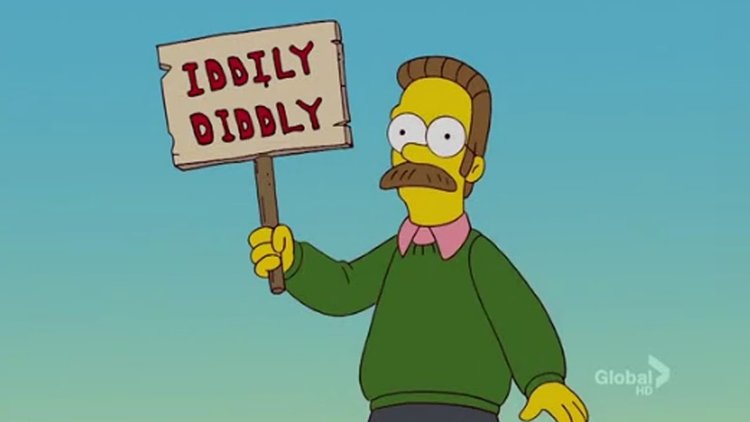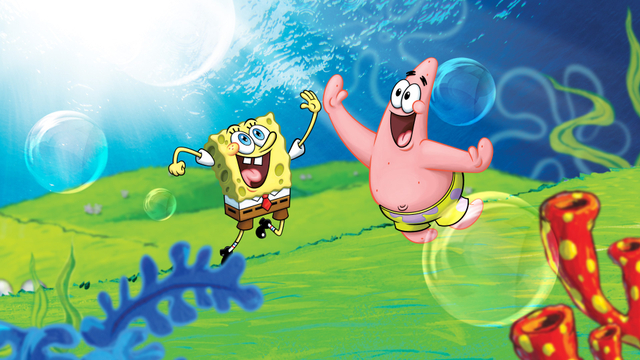
What Made SpongeBob Great
(Nearly everything in this article will be in reference to Seasons 1-3 of SpongeBob. I didn’t watch any of the others, and neither did you, so shaddup)
*sigh*….Hi.
This likely isn’t news to any of you, but the great Stephen Hillenburg has tragically passed away from ALS.

I hate how I keep having to write these types of posts to the backdrop of untimely deaths, but I’m also not going to let it stop me from celebrating an incredible legacy.
For just about everyone born from the early 90s to the early 2000s, SpongeBob Squarepants was a quintessential component to both our childhoods and our development into adults.

The latter statement comes from how, while most of us haven’t actually seen many episodes released after 2003 or so, references and memes to earlier seasons have stayed consistent throughout our lives.
However, while SpongeBob Squarepants is certainly a foundational component to who I am today, it’s always without an ounce of nostalgia when I declare SpongeBob as the greatest children’s cartoon of all-time.

There’s really no “it reminds me of my childhood” that comes to mind when I think of how great SpongeBob is, because there doesn’t need to be.
That’s because I think a kid growing up today could watch some of the older episodes and enjoy them just as much as we did.
It’s not because of the memes, or because of how its merchandise swept the nation in 2002.
I think it’s objectively a fantastic cartoon, and I’m going to take this opportunity to talk about why. So here we go:
The Incredible Writing

What I think is often overlooked is how incredibly well-written SpongeBob is.
While there are many hilarious aspects to the show (we’ll get to those later), what makes SpongeBob stand out is how funny some of the episode premises are by themselves.
For reference’s sake, here are some plots of notable episodes:
- Mrs. Puff lets SpongeBob pass his boating exam off of BS extra credit, and then tries to hijack the car his parents bought him in order to protect the public. (“No Free Rides”)
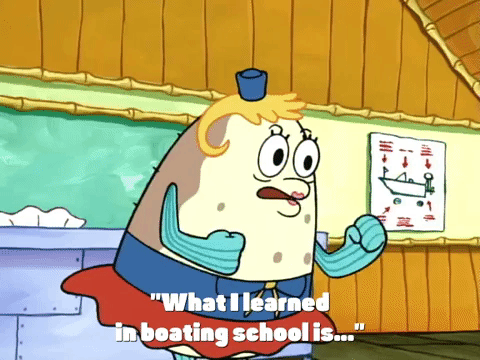
- Squidward accidentally gives SpongeBob a bomb disguised as a pie, and spends the entire day with SpongeBob under the expectation that he’ll explode at sunset. (“Dying For Pie”)
- SpongeBob and Patrick are tasked to paint Mr. Krabs’ garage under the understanding that Mr. Krabs will kill them if they spill paint on anything. (“Wet Painters”)
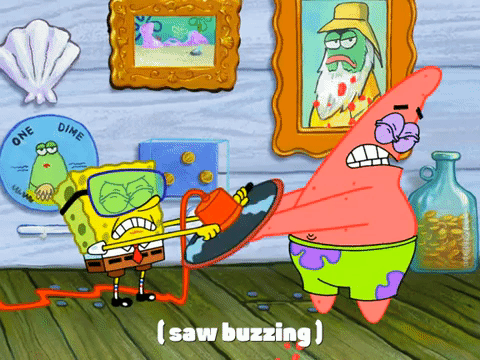
- Squidward engages Spongebob in a ridiculous battle of sabotage over the “Employee of the Month” award at their fast food job. (“Employee of the Month”)
- Mr. Krabs and SpongeBob think they mistakenly have murdered a health inspector, and spend the day hiding his supposed corpse from the police. (“Nasty Patty”)

You’ll notice that a lot of these start off as things that can happen to any of us, but quickly veer off into ridiculous territory.
Like, we’ve all had to hide something serious from an authority figure, but it’s not like any of us ever had to hide a dead body after we fed a disgusting cheeseburger to an innocent guy while laughing our asses off because we thought he was an imposter.
The show also does a really good job of pacing itself within its given premise.
Take, for example, the episode “Procrastination”, in which SpongeBob has to race against clock to finish an essay that he just can’t seem to get around to.

While the time winding down is an aspect of the plot, it takes a backseat to all of the things that SpongeBob elects to do instead of his paper. This is because the episode is more of a metaphor for all the things we do in order to dodge responsibilities.
That’s why the audience doesn’t really mind that SpongeBob is eventually able to somehow finish his essay and get to class within 10 minutes. The episode gave the message that it needed to, and while the assignment was a vehicle to do so, it wasn’t really the focal point.
These are just small, thoughtful things that help move the episode along from joke to joke.
And speaking of jokes…
The Absurdly Genius Humor

SpongeBob has some of the best standalone jokes that you could possibly find in a cartoon.
And they’re not cheap cutaways, either, like what Family Guy has used to great success.
These jokes are usually either related to the plot in some way, or reflect fundamental qualities of the respective character.
But every show does that (or at least tries to). SpongeBob is special because of how incredibly absurd some of these jokes get.
They combine old-fashioned slapstick with a more modern type of dry humor to create some of the show’s most memorable moments.
Here are two such examples:
- In “Krusty Love”, when Mr. Krabs is telling to SpongeBob about his crush on Mrs. Puff they engage in the following exchange:
Mr. K: “Mrs. Puff?” Aw, she’s married.
SB: Oh no, Mr. Krabs. She’s single.
Mr. K: Then what happened to Mr. Puff?
And then the show immediately cuts away to a blowfish lamp being turned on, before cutting right back to the previous exchange.
That’s it. That’s all we need to know that Mr. Puff is dead, and has presumably been turned into a lamp.
- In “Shanghaied”, SpongeBob and Patrick are plotting their escape from the Flying Dutchman’s ship, which is hilariously prompted by the classic Patrick line “I have an idea! Let’s…leave!”
It just so happens that the only way out is through the perfume department. The declaration leads to a sequence of SpongeBob and Patrick running through the department while dodging clouds of perfume.
I can’t get over how fucking ingenious this scene was. The writers found a way to reference something outside of the SpongeBob universe in a way that perfectly services the plot.

Neither of these scenes were random cutaway jokes that were shoehorned in for no reason besides getting a cheap laugh. They were funny enough to stand on their own, but were placed strategically to fit perfectly into the given scenario.
Take note, Family Guy fans: this is how you do a damn cutaway joke.
But while the jokes are great on their own, the glue that holds them together will forever be…
The Incredible Cast
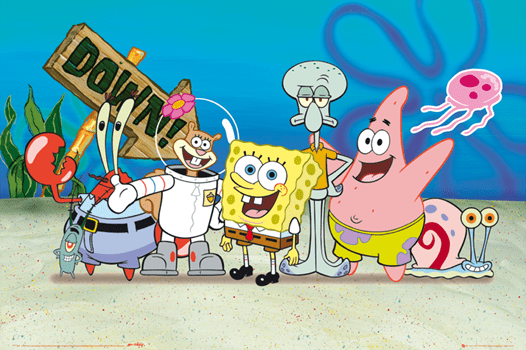
Okay, so a few of you might have heard this before, but there’s a theory out there that the main cast of SpongeBob all represent the Seven Deadly Sins.
Whether the theory is true or not is irrelevant, since I think it’s still a handy way of identifying the cast’s most essential traits.
With that in mind, let’s take a look:
Pride–Sandy:
Sandy is so prideful in this show that she spent an entire episode chasing down SpongeBob and Patrick because they mocked her home state of Texas.
She also goes through some pretty vindictive lengths in the episode “Squirrel Jokes”
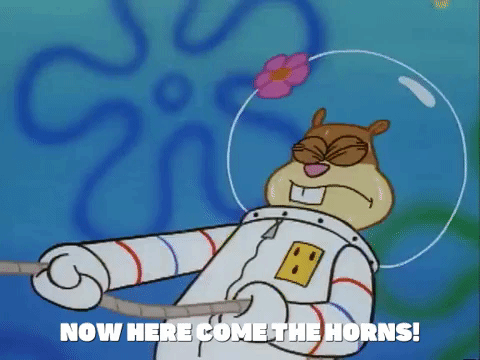
Greed–Mr. Krabs:
Since most of his episode plots revolve around this trait, greed is literally the cornerstone of Mr. Krabs’ character. You can pretty much take your pick:
- “Aargh!”, where he takes SpongeBob and Patrick on a treasure hunt based on a fictional map.
- “Krabby Land”, when he slapped together a shitty amusement park just to get kids (and their parents’ money) into the Krusty Krab.
- “Clams”, where the entire episode is spent hunting down his first earned dollar.

Lust–SpongeBob:
Probably the most disputed attribution, since most people just associate lust with being horny, physical attraction, and my college senior year girlfriend.
However, keep in mind that SpongeBob is a show for children, so “lust” in this case can be scaled down to simply mean an excessive desire to show affection for others.
SpongeBob is basically so blinded by his adoration for others that he doesn’t realize how much they dislike him. This mainly pertains to Squidward, but we’ll get to that later.

Envy–Plankton:
This one’s pretty obvious here. Plankton, despite apparently going to college, will forever be jealous of Mr. Krabs’ success and wealth.
It got to the extent that he even tried switching places with him in “The Algae’s Always Greener”, which ended up being one of my favorite episodes in the series.

Gluttony–Gary:
Another loose one here. I think the best evidence for this is that there really isn’t much to Gary’s character besides his large appetite and independent nature.
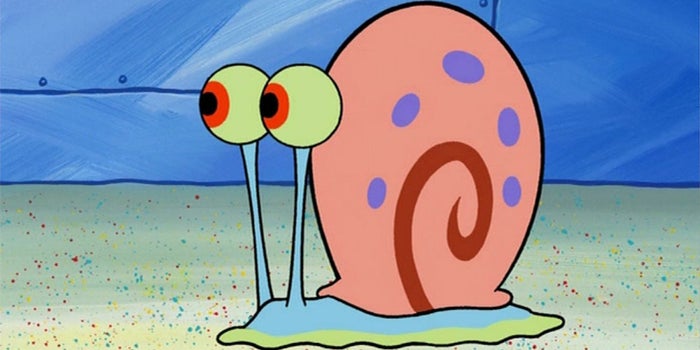
Wrath–Squidward:
In the episode “Karate Choppers”, Squidward ends the episode by saying “I hate all of you”. Need I say more?
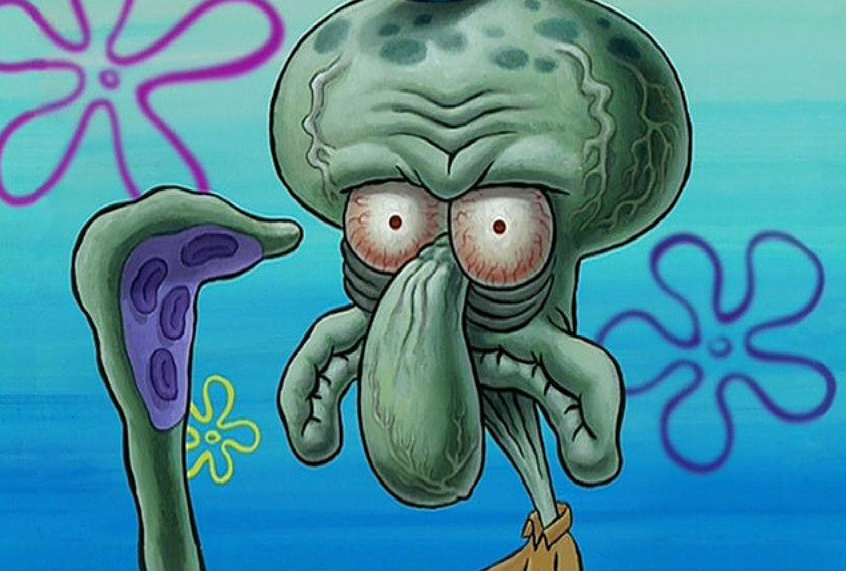
Sloth–Patrick:
While the earlier episodes painted Patrick as more of a leisurely, laid-back kind of character who gave SpongeBob bad advice, it quickly evolved into general negligence to adult responsibilities.
This is adequately encapsulated in the episode “Big Pink Loser”, where he wins an award for doing absolutely nothing longer than anyone else in Bikini Bottom.
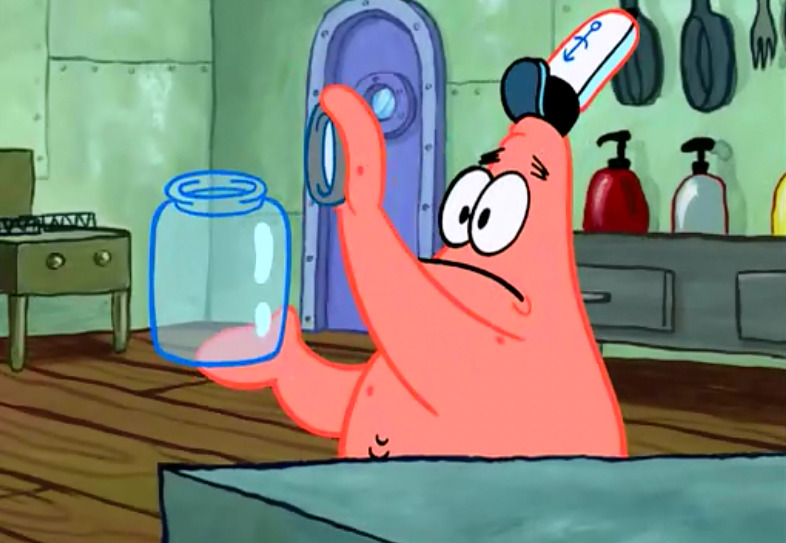
While the show has a well-balanced cast of distinctive characters, what made SpongeBob stand out in its earlier seasons is how well it gave its characters enough depth in order to avoid “Flanderization”.
For those who don’t know, Flanderization (inspired by Ned Flanders from The Simpsons) is when a certain trait about a character is continuously emphasized over time until the character becomes a caricature of that trait.
Some examples include Eric Matthews from Boy Meets World, Chelsea from That’s So Raven, and Goku in Dragon Ball Super.
While the main cast in SpongeBob each had their own unique quirks, the first 3 seasons did a great job of showing much more sides to their personalities (which later seasons definitely did NOT do).

So, yeah, Mr. Krabs is greedy. But that’s not ALL he is. There were still episodes where his greed didn’t show up at all in favor of other aspects of his personality.
“Sailor Mouth” had him take on more of an authoritative/fatherly role to SpongeBob and Patrick, and “Mid-Life Crustacean” revealed a pretty relatable fear of aging.
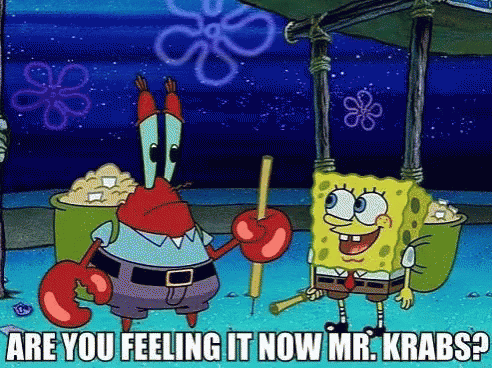
SpongeBob might be friendly to a fault in most cases, but he was a straight up asshole to Plankton in “Welcome to the Chum Bucket”, and even flexed his competitive muscles in “The Fry Cook Games”.
“The Fry Cook Games” is actually one of the best examples of this, since the episode features SpongeBob, Patrick, Plankton, and Mr. Krabs setting aside their usual shticks for old-fashioned competitive hatred.
.jpg)
Unfortunately, once “The SpongeBob Movie” came out, everything went to shit. Mr. Krabs only talked about money, Patrick was only a complete fucking idiot, and Squidward’s sole existence was just to tell SpongeBob how much he hated him.
But for the first 3 seasons, SpongeBob was able to take the world by storm with its cast of eccentric characters who, while being distinct in their own ways, had multiple dimensions to them that made them feel like real people.
…Or, anthropomorphic aquatic beings. Whatever.
I want to take things a step further, though. Even with the great writing, clever humor, and memorable characters, there’s one thing unique to SpongeBob that has made it an all-time great:
The Relationship Between SpongeBob and Squidward
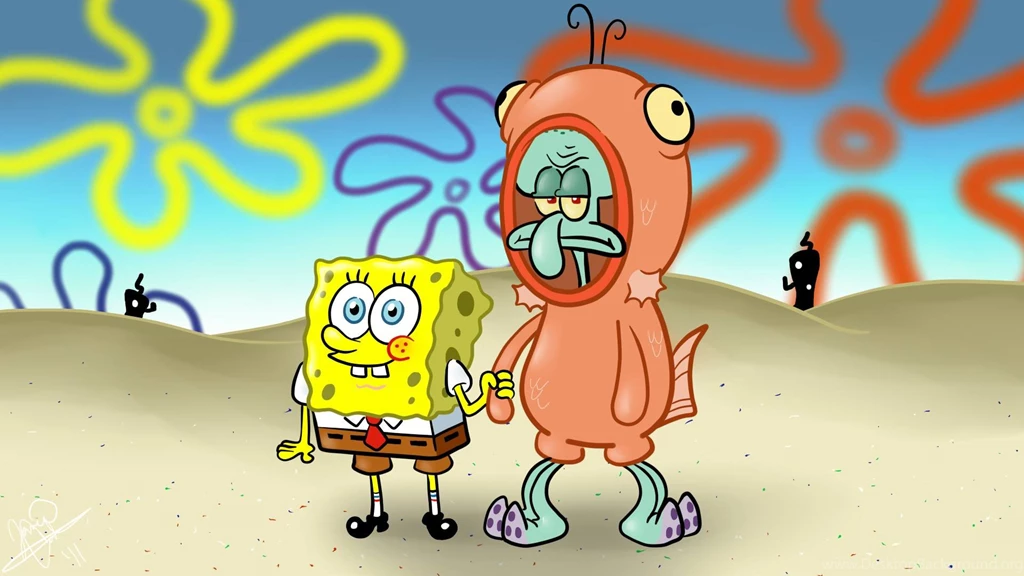
A few essays and articles about this are already floating around, so this isn’t an incisive opinion of mine, but the fact remains: SpongeBob and Squidward are the main characters of this show.
While Patrick has just as much screen time, he shares a lot of SpongeBob’s idiotic qualities, so their episodes usually just entail the two bouncing the same blissful ignorance off one another.
Squidward, however, is the diametric opposite of SpongeBob in terms of world view.

If you really look at them, SpongeBob and Squidward don’t lead terribly different lives. They’re both single, live on the same street, and even work shitty jobs at the same restaurant.
The only real difference in this dynamic is their perspectives.
SpongeBob is around 23 years old, and sees the world accordingly. He’s excited to work at the Krusty Krab, and literally starts every day by screaming “I’m ready!”.
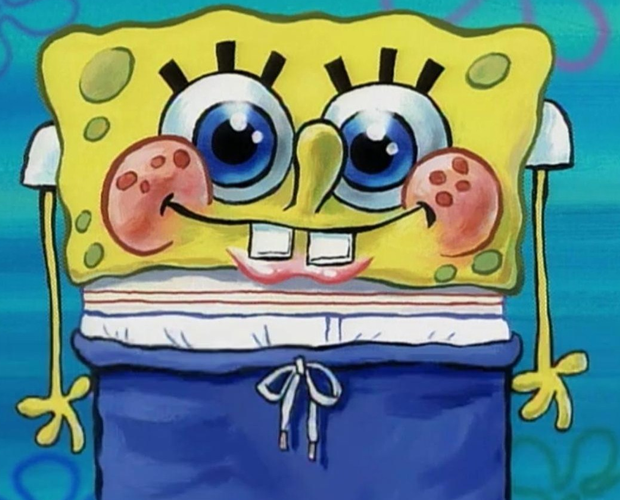
Squidward, on the other hand, is around 45 and has therefore long since passed any youthful exuberance that he might have once had.
He hates both his job and neighbors, and has convinced himself that his fruitless artistic pursuits make him above his peers.
The only thing is that he isn’t. He, like Mr. Krabs and SpongeBob, is nothing more than a fast food worker. And this realization in the face of SpongeBob’s optimism is what causes so much anger towards the sea sponge.

This stark contrast of outlook on the same situation is what drives some of the show’s very best episodes.
We’ll usually have both SpongeBob in Squidward experiencing the same scenarios in very different ways, in episodes such as:
“Graveyard Shift”, where Squidward is hell bent” on ruining SpongeBob’s enjoyment of their after hours shift.
“Idiot Box”, when Squidward is continuously pissed off by SpongeBob and Patrick’s ability to have fun with a cardboard box.
“Krusty Krab Training Video”, where the two are continuously juxtaposed in their workplace habitats. This episode makes it painfully clear how much SpongeBob loves his job, and how much Squidward hates it.
The reason these episodes are among the most memorable is because of how well the dynamic between SpongeBob and Squidward is.
.jpg)
But again, this is nothing new to TV. There are plenty of shows that lean heavily on this type of duo→ like “Pinky & The Brain”.
What truly makes SpongeBob special, though, is the amount of heart it puts into this relationship. While Squidward says all the time that he hates SpongeBob, several episodes really make it clear that he actually cares about him a lot.
And it didn’t take long for the show to thrust this fact into the limelight, since the season 1 episode “Pizza Delivery” might remain the best example of this.

As you probably all know, SpongeBob and Squidward are tasked to delivery a Krusty Krab Pizza to a customer.
For 99% of the episode, Squidward is relentlessly annoyed at SpongeBob’s excitement about delivering a pizza, his overly optimistic use of “Pioneer” methods, and his general dedication to the task at hand.
But something important happens once the two finally complete their task. The customer turns out to be a complete asshole, slamming the door on SpongeBob’s face because his Diet Dr. Kelp was forgotten.
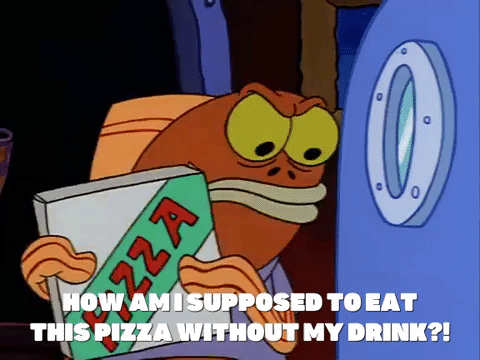
SpongeBob’s whimsical adventure to deliver the pizza comes to a screeching halt when he’s faced with the harsh reality of the world.
This collision causes a rare breakdown of SpongeBob’s optimism, and he begins crying.

Squidward, despite spending the ENTIRE day deriding SpongeBob for his positive attitude, is empathetic towards the sight of his coworker crying, and decides to stand up for him.
He walks right up to the customer and shoves the pizza in his fucking face.
It’s important to note that Squidward didn’t have to do this. The guy didn’t want the pizza, so he could have easily taken the L and went back to work.
But he was surprisingly moved by SpongeBob’s sadness, and did what it took to protect his friend and restore his optimism.
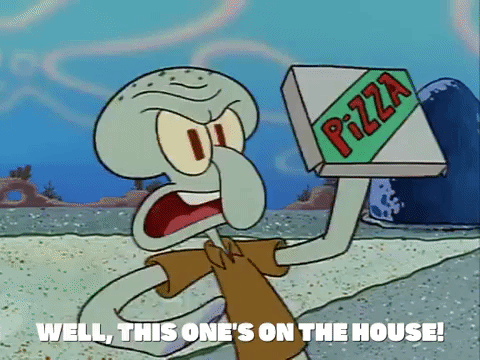
And that, at long freaking last, leads me to what has continued to make SpongeBob loved throughout our lives.
People who grew up with the show are currently between being SpongeBob and being Squidward.
We were all pretty optimistic when we were younger (except me and anyone else who listened to Linkin Park), but the world has continued to wear us down as we’ve gotten older.
.jpg)
Slowly, we’ve had to come to grips with the fact that life hasn’t exactly turned out like we think it would, and some of us are struggling to get out of their current life situations. And while we want to stay positive towards the future, it seems to be a goal that only gets more distant as time passes.
However, there’s something to be said about our diligence towards protecting what’s good in the world. Despite how dismal things have gotten, we’ll still do what it takes to stand up for things that we think are wrong.
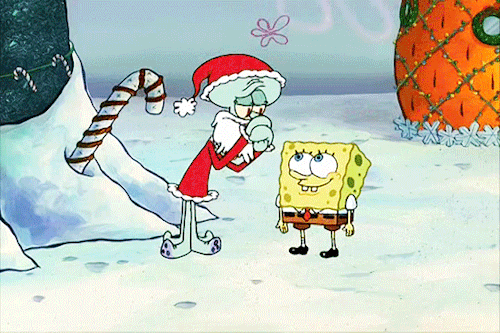
Squidward’s one moment of caring for SpongeBob perfectly represents where we are today. We’ll make fun of our lives and how shitty everything is all day, but we’ll be damned if anyone harms what we care about–even if we don’t show how much we care that often.
So yeah, this is the heart of the show.
Conclusion

SpongeBob was is special.
It’s special to me, my friends, and basically anyone else aged 20-30 right now.
The characters are unforgettable, the plots and jokes are hilarious, and the SpongeBob/Squidward dynamic only seems to be getting more relatable with time.
So while it was undoubtedly an immensely popular show, I don’t think it’s just clever marketing that got it there.
Rather, it’s the undeniable quality of what I consider to be the best children’s cartoon in history.
If you don’t believe me, watch a few episodes. I’ll be publishing a Top 30 list shortly, in case you need recommendations.
Okay, I think I’m done.
Thanks for reading–I sincerely mean it.
Dedicated to Stephen Hillenburg. Thanks for everything.
